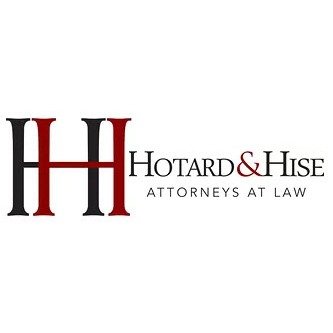Best Arrests & Searches Lawyers in Clarkesville
Share your needs with us, get contacted by law firms.
Free. Takes 2 min.
List of the best lawyers in Clarkesville, United States
About Arrests & Searches Law in Clarkesville, United States
In Clarkesville, like the rest of the United States, the law regarding arrests and searches is primarily governed by the Fourth Amendment of the U.S. Constitution, which protects citizens from unreasonable searches and seizures. Police must have probable cause or a warrant to arrest or search you, unless certain exceptions apply, such as immediate danger or consent to the search. Local law enforcement agencies in Clarkesville must also adhere to Georgia's state-specific laws and regulations.
Why You May Need a Lawyer
Potential situations where a lawyer's assistance would be beneficial include: after being arrested, if your home or property has been searched by law enforcement, or when you're involved in a police investigation. A lawyer can help protect your rights, provide advice on what to say to law enforcement, and guard against any potential self-incrimination. If charges become formal, a lawyer can defend you in court.
Local Laws Overview
While U.S. and Georgia state constitutional principles guide arrests and searches in Clarkesville, local ordinances also play a role. For example, regulations concerning law enforcement procedures, such as when and how police can execute a warrant, how arrests must be conducted, and specific rights charges may vary. Always consult with a local attorney to ensure you understand the nuances of Clarkesville law.
Frequently Asked Questions
Can police search my house without a warrant in Clarkesville?
Generally, the Fourth Amendment requires police to get a warrant to search your house; however, exceptions exist such as exigent circumstances, consent, or the evidence being in plain view.
What constitutes probable cause for an arrest or a search?
Probable cause exists when law enforcement has reasonable grounds, based on facts and circumstances, to believe a crime was committed. The interpretation can be complex, so consult with a lawyer for clarity.
What are my rights if I am arrested in Clarkesville?
You have the right to remain silent, the right to an attorney, the right to avoid self-incrimination, and the right to know the charges against you. An attorney can give you a more comprehensive explanation based on the details of the case.
Can police search my car without a warrant in Clarkesville?
The courts generally give more leeway to car searches, due to the mobility of vehicles and lower expectation of privacy. Police may conduct searches if there's probable cause to believe that evidence or contraband is present.
Can I resist an unlawful arrest?
Even if an arrest is unlawful, it's generally not a good idea to resist as it can lead to additional charges. However, you can challenge it legally afterward with the help of a lawyer.
Additional Resources
You may find the following resources helpful:
- Clarkesville Police Department: Local law enforcement agency that enforces law within the city limits.
- Georgia Legal Services Program (GLSP): Provides free legal assistance for cases involving criminal law matters.
- American Civil Liberties Union (ACLU) of Georgia: Advocacy group that provides resources and support for issues related to civil liberties.
Next Steps
If you believe you are in need of legal assistance regarding an arrest or search, the next step is to reach out to a criminal defense attorney experienced in Fourth Amendment law. They will be able to provide advice specific to the circumstances of your case. It's important to share complete details with your lawyer to ensure you receive the most beneficial guidance. In case you cannot afford a lawyer, you may qualify for state provided public defense during court proceedings.
Lawzana helps you find the best lawyers and law firms in Clarkesville through a curated and pre-screened list of qualified legal professionals. Our platform offers rankings and detailed profiles of attorneys and law firms, allowing you to compare based on practice areas, including Arrests & Searches, experience, and client feedback.
Each profile includes a description of the firm's areas of practice, client reviews, team members and partners, year of establishment, spoken languages, office locations, contact information, social media presence, and any published articles or resources. Most firms on our platform speak English and are experienced in both local and international legal matters.
Get a quote from top-rated law firms in Clarkesville, United States — quickly, securely, and without unnecessary hassle.
Disclaimer:
The information provided on this page is for general informational purposes only and does not constitute legal advice. While we strive to ensure the accuracy and relevance of the content, legal information may change over time, and interpretations of the law can vary. You should always consult with a qualified legal professional for advice specific to your situation.
We disclaim all liability for actions taken or not taken based on the content of this page. If you believe any information is incorrect or outdated, please contact us, and we will review and update it where appropriate.








